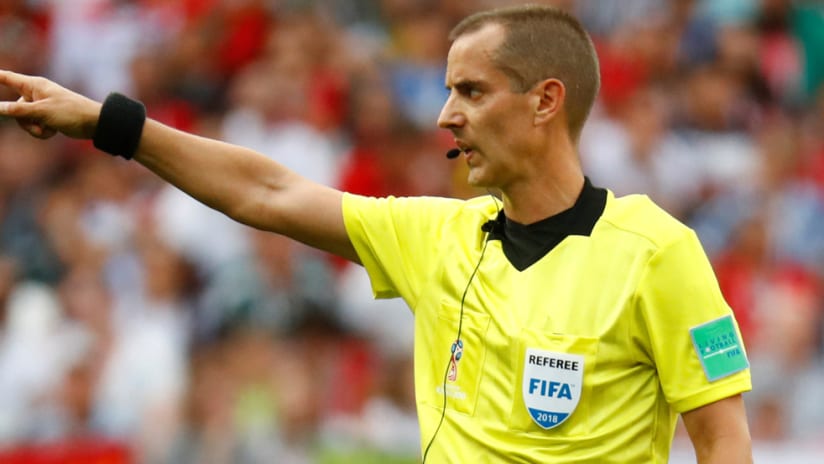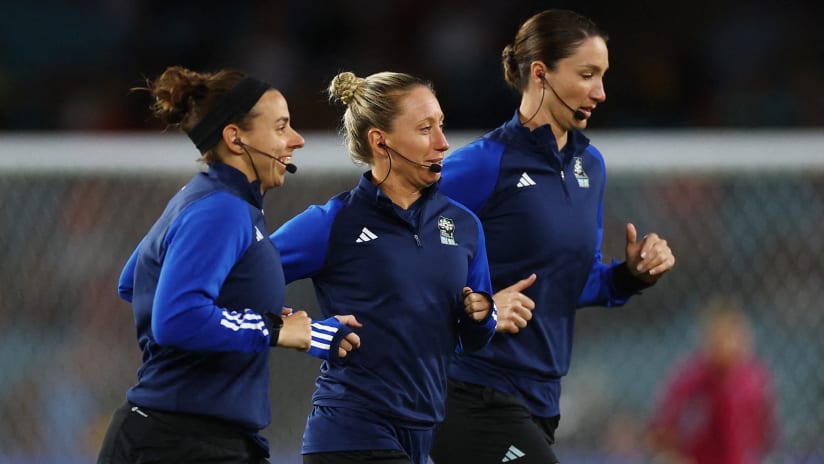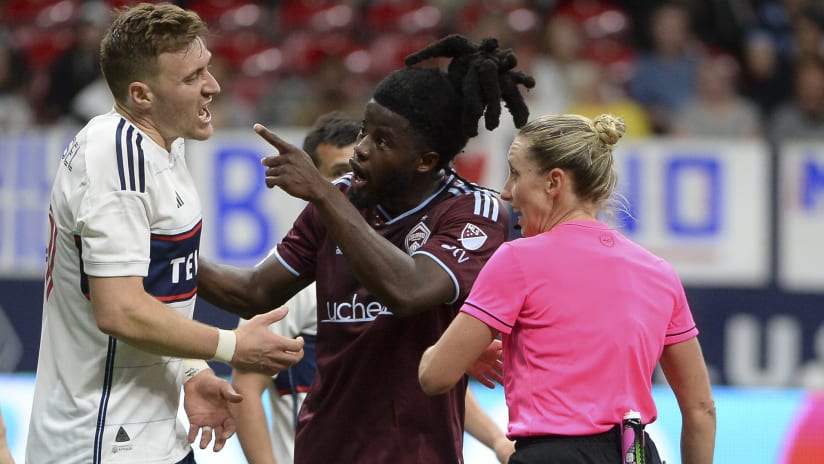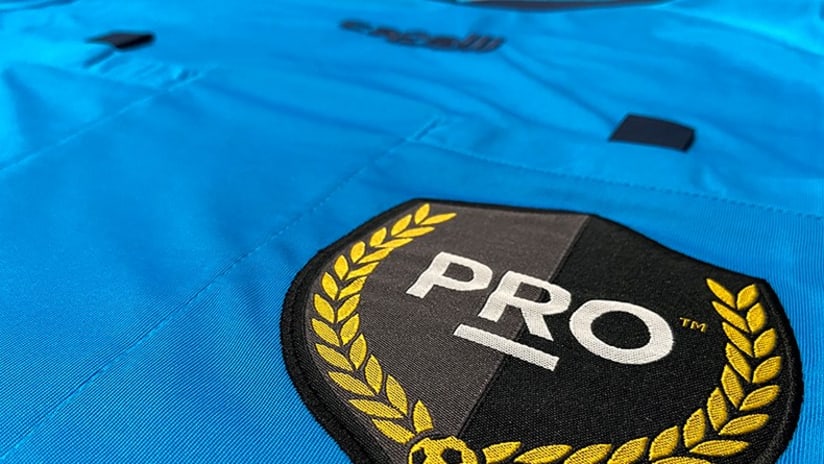The 2019 FIFA Under-20 World Cup won't look like the soccer you've grown accustomed to watching in recent years, and it has nothing to do with the age cap of the players on the field.
The International Football Association Board (IFAB) updated their Laws of the Game, with rule changes that are first taking effect with the U-20 World Cup. There are more than a few consequential changes fans should familiarize themselves with and they'll be coming to MLS in 2020.
“I count 12 significant law changes," Professional Referee Organization (PRO) director of senior match officials Mark Geiger told MLSsoccer.com this week. "They had a major overhaul three years ago when they took out 10,000 words from the Laws of the Game, so this is the biggest overhaul since then.”
New goal kick rule
One of the most obvious tweaks will come on goal kicks. Attacking teams can now legally play the ball inside the penalty box on goal kicks. Also, no more needing to wait for everyone to vacate the penalty area for a goal kick to take place.
The opponent is still required to vacate the box until the ball is kicked, but the team in possession can still opt to take a quick goal kick with defensive players still positioned in the area. Even if the opponent has not yet exited the box, the referee can allow play to continue.
The rule is designed to increase effective playing time and limit time wasting. And if the defending team attempts to disrupt the flow of the game by standing directly in front of the ball on a goal kick and preventing a player from taking it, Geiger says that a yellow card will be issued for delaying the restart similar to what occurs on free kicks.
Off my wall!
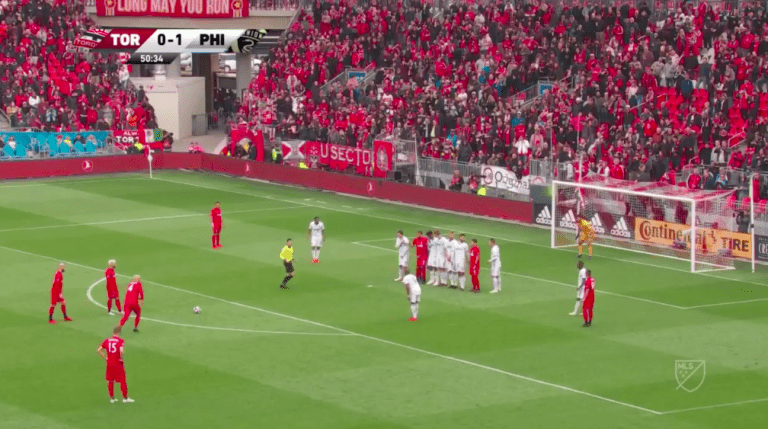
Another key change will come on free kicks. Attacking players will not be permitted to stand within a meter of the wall should the wall feature three or more defensive players. For example, consider the above image captured moments before Alejandro Pozuelo scored from a free kick.
The two Toronto FC players flanking either side of the Philadelphia Union's four-man wall would not be permitted to stand that close to the wall. By new rules, the referee would be instructed to make them move. This rule is only in effect for walls featuring three players or more.
New drop ball procedures
Another key change involves the match officials. If the ball hits a referee and possession changes, the game will be stopped and a drop ball will be used to return possession to the team originally in control of it.
"We’ve seen a couple of incidents this year where that could have been beneficial to prevent controversy," Geiger said. "These are things that are going to be beneficial. It keeps it fair. The worst thing for a referee is you get hit by a ball and you create a goal-scoring opportunity for the other team. We have video clips of it actually bouncing off a referee and going directly into the net. It can be a nightmare for the referee.”
The drop ball is undergoing a makeover, too.
Drop balls will now be uncontested and the team that's not in possession can be no closer than four meters to the ball. Whatever the reason for the stoppage, including moments when play is stopped due to an injury, the team in possession of the ball will resume their possession wherever play was halted. This removes the need for acts of fair play that sometimes involve a team blasting the ball long distances as a means of returning possession to the opposition.
“All the gamesmanship of dropping the ball and kicking it out of bounds all the way down to the corner, or trying to take advantage and starting an attack, all of that is going to be gone," Geiger said. "This is designed to improve the attractiveness of the game.”
Faster subs
There will be a noticeable difference when it comes to substitutions, as well. Players leaving the game will be instructed to exit at the nearest possible touchline, a change designed to combat delay tactics.
It's a rule that will allow the referee to exercise his or her judgement, though.
“It’s really up to the referee," Geiger said of enforcing this particular change. "A lot of these stadiums around the world, these supporters’ sections can be rather violent. If it’s a safety issue or something like that. Or like [Chris] Wondolowski, when he gets subbed out at the end after scoring four goals and setting a record, a referee in their right mind would allow him to come over to the bench and leave at midfield. Referees have some flexibility in this.”
It might take some getting used to, but Geiger is a big proponent of all the rule changes. PRO's referees will be enforcing them in MLS beginning next season.
“All of them are going to help the game in some way," Geiger said. "I think 10 years down the road, we’ll look back when these weren’t in effect and wonder ‘what were we thinking?’ It’s going to help speed up the game in a lot of cases.”


